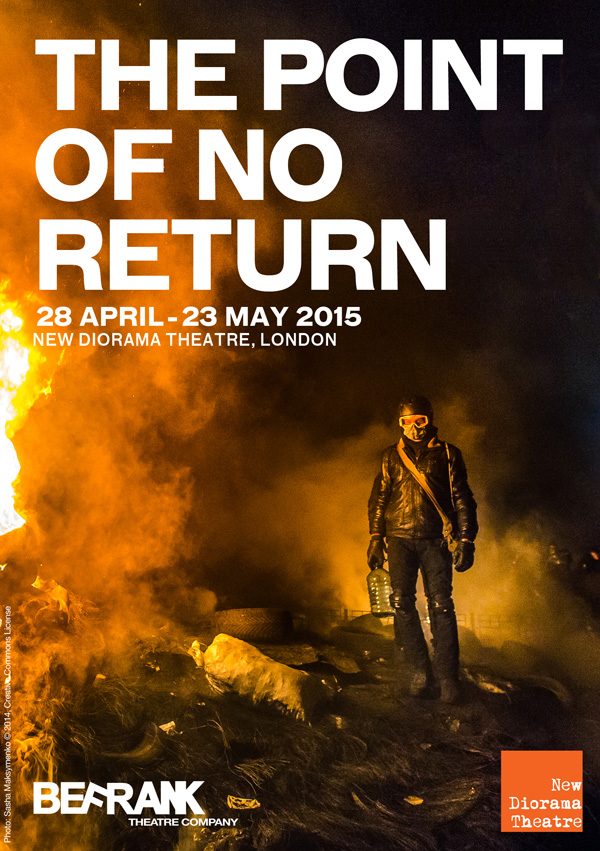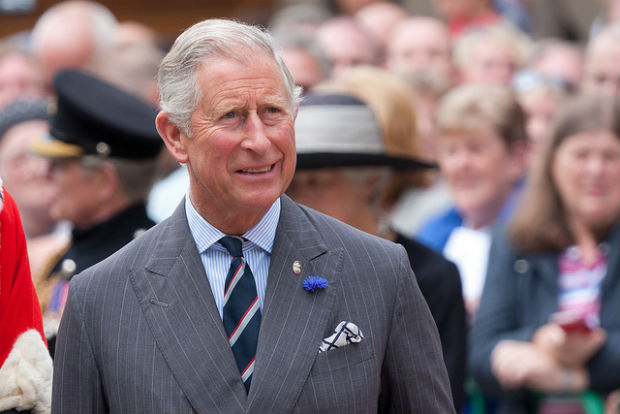20 May 2015 | Campaigns, mobile, Press Releases, Statements
A UK Supreme Court judgment today has overturned an injunction preventing publication of the musician James Rhodes’ memoir Instrumental.
The case known as OPO v MLA was brought by Rhodes’s ex-wife, who claimed that publication of the book would cause psychological harm to their son, who suffers from Asperger’s syndrome, attention deficit hyperactivity disorder, dyspraxia and dysgraphia. The memoir, to be published by Canongate, is an account of James Rhodes’s traumatic childhood in which he was the victim of sexual abuse and its impact on his adult life. He recounts the vital role of music and how it saved him from self-harm, addiction and suicide.
The High Court struck out the proceedings, arguing that there was no precedent for an order preventing a person from publishing their life story for fear of its causing psychiatric harm to a vulnerable person. But a temporary injunction was granted by the Court of Appeal until the case came to trial, on the grounds of an obscure Victorian case Wilkinson v Downton, in which a man who played a practical joke on the wife of a pub landlord was found to be guilty of the intentional infliction of mental distress.
English PEN, Index on Censorship and Article 19 intervened in the appeal at the Supreme Court as third parties, arguing that the Court of Appeal’s decision would have a chilling effect on the production and publication of serious works of public interest and concern.
In a robust defence of freedom of expression, the court ruled: ‘The only proper conclusion is that there is every justification for the publication. A person who has suffered in the way that the appellant has suffered, and has struggled to cope with the consequences of his suffering in the way that he has struggled, has the right to tell the world about it.’
The Supreme Court criticised the Court of Appeal’s ruling in its judgment, stating that the terms of the injunction were flawed and voicing its concern about the curtailment of freedom of speech:
‘Freedom to report the truth is a basic right to which the law gives a very high level of protection. It is difficult to envisage any circumstances in which speech which is not deceptive, threatening or possibly abusive, could give rise to liability in tort for wilful infringement of another’s right to personal safety. The right to report the truth is justification in itself. That is not to say that the right of disclosure is absolute, for a person may owe a duty to treat information as private or confidential. But there is no general law prohibiting the publication of facts which will cause distress to another, even if that is the person’s intention.’
‘This an important judgment overturning an injunction that not only prevented the public from reading a powerful book of wide interest, but posed a significant threat to freedom of expression more broadly. It’s encouraging to see the Supreme Court’s clear and unequivocal support for free speech,’ said Jo Glanville, Director, English PEN.
‘The decision of the Supreme Court is an important verdict for free expression. In particular we commend the court’s recognition that freedom to report the truth is a basic right protected in law and its reassertion of the right to produce material that others may find offensive,’ said Jodie Ginsberg, CEO, Index on Censorship.
Last October, 20 leading writers, including David Hare, Michael Frayn, William Boyd and Tom Stoppard wrote to the Daily Telegraph to say that they were ‘gravely concerned about the impact of this judgment on the freedom to read and write in Britain’.
They added: ‘The public is being denied the opportunity of reading an enlightening memoir, while publishers, authors and journalists may face censorship on similar grounds in the future.’
14 May 2015 | mobile, News, United Kingdom
It has been hailed as the damp squib to end damp squibs. The let down of let downs. The mother, the pearl of non-stories. Prince Charles’s “black spider” letters to various government ministers including the prime minister Tony Blair over eight months between 2004 and 2005 have elicited barely an OMG! or a WTF?, but many, many, mehs.
“Where’s the crazy stuff about homeopathy?”, we mumble. “Isn’t there supposed to be some stuff about talking to vegetables, or converting to Kaballah? Aliens? Surely some crop circles?”
Nothing. Or at least nothing worth shaking a divining rod at. One mention of herbal medicines. A hat tip to the Patagonian toothfish and the “poor old albatross”. Lots and lots of impressive detail about agricultural policy.
If anything, having scanned the letters I found myself thinking more highly of Prince Charles than previously. He clearly knows his stuff (or at least has had the good sense to employ someone who knows their stuff) and is genuinely concerned for the farming and fishing sectors.
That is not to say I am comfortable with the existence of these letters. I am a dyed-in-the-wool, though realistic, republican. That is to say, I sincerely disagree with monarchy in any form, but realise there’s not much point in going on about it in the UK. Most people seem reasonably happy with the archaic, arcane set up of the British monarchy. They’re not doing much harm, really, and doesn’t the Duchess of Cambridge have lovely hair? And none of it really matters.
Except that it does matter. The weirdness of the entire set up was exposed after the birth of Princess Charlotte in April. Royal correspondents openly spoke of her assumed lifelong role as second fiddle to her brother, George, who will one day be king.
The BBC did that thing where it reminds you that it is a state broadcaster, informing subjects about how the newborn had brought joy to the entire nation. I am not yet sufficiently misanthropic to be displeased by the birth of a child, but the whole thing had the feeling of the celebration of a successfully completed pagan ritual.
I sometimes wonder if it’s different if you were raised with this stuff: if the British are immune to the oddness of it all.
Times journalist Hugo Rifkind, a writer I admire and generally believe to be right about pretty much everything, confused me with a column after the Supreme Court’s decision that the letters should be published in which he suggested that those who wanted the letters published were guilty of taking the prince too seriously: “[The letters are] the late-night rages of Mr Angry of Highgrove,” Rifkind wrote. “They’re the green ink letters to the press. In a sane and sensible nation, they wouldn’t matter at all.”
The problem is that this isn’t a sane and sensible nation. It is a nation where, purely by birth, Charles has a constitutional role to play. In a republic, the adult first-born of a president could sent whatever letters they wanted, and we’d leave them to it. In a monarchy, you cannot just be the child of a head of state: if that role depends on lineage, then it follows that Charles, while not head of state himself, still has power. It is one thing for a head of state to have regular meetings with her prime minister, but another for her son to throw his weight around on specific policy issues, even if it is all relatively boring stuff. If the monarchy is essentially meaningless and impotent, then scrap it. If not, well, it scrapping is even more urgent.
The government must also take its share of the blame for the fiasco that led to a 10-year legal fight with The Guardian at an estimated cost of £400,000. Why such determination to block the publication of a few letters on farming? Why the panic?
One supposes that they worried not just about the monarchy (former Attorney General Dominic Grieve suggested that the release of the letters would hamper Charles’s future ability to govern), but also about the implications: freedom of information gone wild. If a newspaper can demand to see correspondence from the heir to the throne, where does it all end?
Tony Blair claimed that one of his biggest regrets in government was the introduction of the Freedom of Information Act, which he claimed hampered candid conversations at cabinet level. I have some sympathy with this viewpoint, but I think the benefit of FOI has outweighed any negatives.
But now, with the publication of these old letters, ministers fear they will lose control of the freedom of information process. Hence attempts to strengthen a blanket ministerial veto on freedom of information requests. This on top of the exemption to FOI for senior royals introduced in 2011, in response to the black spider case. It’s a regressive step in an age where we keep being told of the need for open government. But that’s the mess monarchy has got us in to.
We’re not even a week into the new government, and already alarm bells are ringing over freedom of speech (with the government’s extremism plans) and freedom of information. The next few months and years will see bitter wrangling between government and civil libertarians.
If only we knew someone who would be sure that his concerned letters to ministers would be given full attention.
This column was posted on 14 May 2015 at indexoncensorship.org
28 Apr 2015 | Events, mobile

The Point of No Return, a new play based upon the last four days of Ukraine’s Maidan protests. From personally recorded real-life stories, extensive research and a journey to the heart of Ukraine, this story is based upon the revolution in Kiev in January-February 2014.
The performance on 6 May will be followed by a discussion including Jodie Ginsberg, CEO of Index on Censorship:
- How important is freedom of speech to democracy?
- What form did censorship take in the Ukrainian revolution?
- How is censorship happening in the UK today?
Index joins BeFrank Theatre Company for an evening of debate and discussion about the future of free speech in the UK, Ukraine and across the world.
Where: New Diorama Theatre, London (Nearest Tube: Warren St)
When: Wednesday 6 May 2015, 7.30pm
Tickets: £12-£15 / Book here
An earlier version of this event provided the wrong date. It takes place on 6 May.
26 Feb 2015 | mobile, News, United Kingdom

(Illustration: Shutterstock)
There is, I am told, a war going on in feminism. A war between “intersectionalists” (I think) and TERFs (Trans-Exclusionary Radical Feminists, as far as I can tell).
I am not about to stick my oar into this particular boating lake, for two reasons:
Reason 1. Self-awareness. I am a white middle class western European media professional, north-London dwelling male, born in a time when there is little chance of conscription. I am practically the most privileged thing that ever existed, and the last thing people struggling for equality need is me, turning up, cheerily shouting “Only me!!!” like Harry Enfield’s Mr-You-Don’t-want-to-do-it-like-that, and telling people how to do a real feminism. That is not to say I do not have a right to have an opinion, but…
Reason 2: lurking in that apparently placid boating lake are piranhas, reading to chew up and spit out any oarsman (or woman) who does not know every ebb and eddie of the lake.
It’s a horrible sight to see. Every so often some poor naive jumps in their little pleasure boat, having been assured by the man that it’s perfectly safe, and rows happily to the middle of the lake. You watch from the shore. They wave back. What’s that sound? They’re singing Sister Suffragette from Mary Poppins, their rowing keeping a brisk beat with the jaunty marching tune. “Shoulder-to-shoulder” and-stroke-and-stroke.
Unbeknownst to them, the piranhas have smelled blood. They row on. Gleefully, they reach the crescendo: “Our daughters’ daughters’ will adore us…”. They raise their hands to punch the air. An unattended oar slips into the water. The piranhas stir. Daughters? That sounds like determinism. The water begins to froth. The poor unsuspecting oarsman (or woman) is still singing. Eventually they catch the commotion in the corner of one eye: they hear it grow louder, under the boat, which now seems irresponsibly flimsy.
They sing still, but now in trepidation: “No more the meek and mild subservients we!”.
The frenzy grows stronger, at what was certainly a slight on members of the BDSM community (well, the Ms anyway). Stronger and stronger. Our rower tries to resist, we can see, but the boat is now falling apart, as if rotten, under their feet. Our previously carefree rower feels first a nip, and then a rush. They are simultaneously drowning and being eaten alive.
A final defiant shriek from a the near-eviscerated pleasure seeker, and then there is nothing. The waters are calm once more.
We tut, from the shore. Such a shame, such a loss. Did you see the cowbell dog?
That’s one version, but then try to see it from the fishes’ point of view. Fish have got to live. Piranhas have been, for years, maligned as a generality by the mainstream. The very word “piranha” is thrown around as an insult. Piranhas are irrational, illogical, even abominations against nature. And of course, there is more than one type of piranha, and not every piranha has the same experience of what it’s like being a piranha. Piranha identity is complex, to say the least. But that doesn’t mean piranhas shouldn’t bond together and work together. What outsiders view as a “feeding frenzy” is actually the best – only – way piranhas can continue to exist safely.
Besides, the piranhas grew up in this lake. They know it like the back of their fins – how to navigate, how to communicate. If anyone’s in a wrong place in the boating lake, it’s not the piranhas.
This is not an unreasonable case. The question then (and here’s where the horrendous tortured boating lake analogy comes to an end, you’ll be pleased to know) is: Was George Bush right? Can the human beings and the fish coexist peacefully?
The issue emerged again recently with a terse exchange of letters in the Observer newspaper, which followed the cancellation of a show by comic Kate Smurthwaite at Goldsmith’s college. Smurthwaite said she’d been banned because some university feminists who are pro sex work were threatening to protests against her anti sex work views, and the college security didn’t want the hassle.
A letter was put together, as letters are, decrying campus censorship and the narrowing of debate (with specific mention of the National Union of Students’ policy of “no-platforming” feminist Julie Bindel for statements on trans people). There was a response, disputing the facts of the first letter and suggesting that there are bigger campus free speech issues – around student protest for example – than whether certain already powerful people can take part in a panel debate or a comedy show.
The problem here is the commodification of free speech: who is allowed it and who isn’t, and, in hierarchical societies (i.e. pretty much every society we’ve come up with so far) who grabs it as theirs and who should be granted more in order to even things out, and who can “use” free speech against whom.
This is to treat free speech as a weapon rather than a space. There is not a limited amount of free speech to go round: rather, there is a (hopefully) ever-expanding free speech arena in which we can argue. The signatories of both letters have actually identified the same problem, the narrowing of the space, particularly in education. Perhaps it would be beneficial for them to defend the space in which to argue rather than trying to push the other side overboard.
This article was posted on 26 February 2015 at indexoncensorship.org



